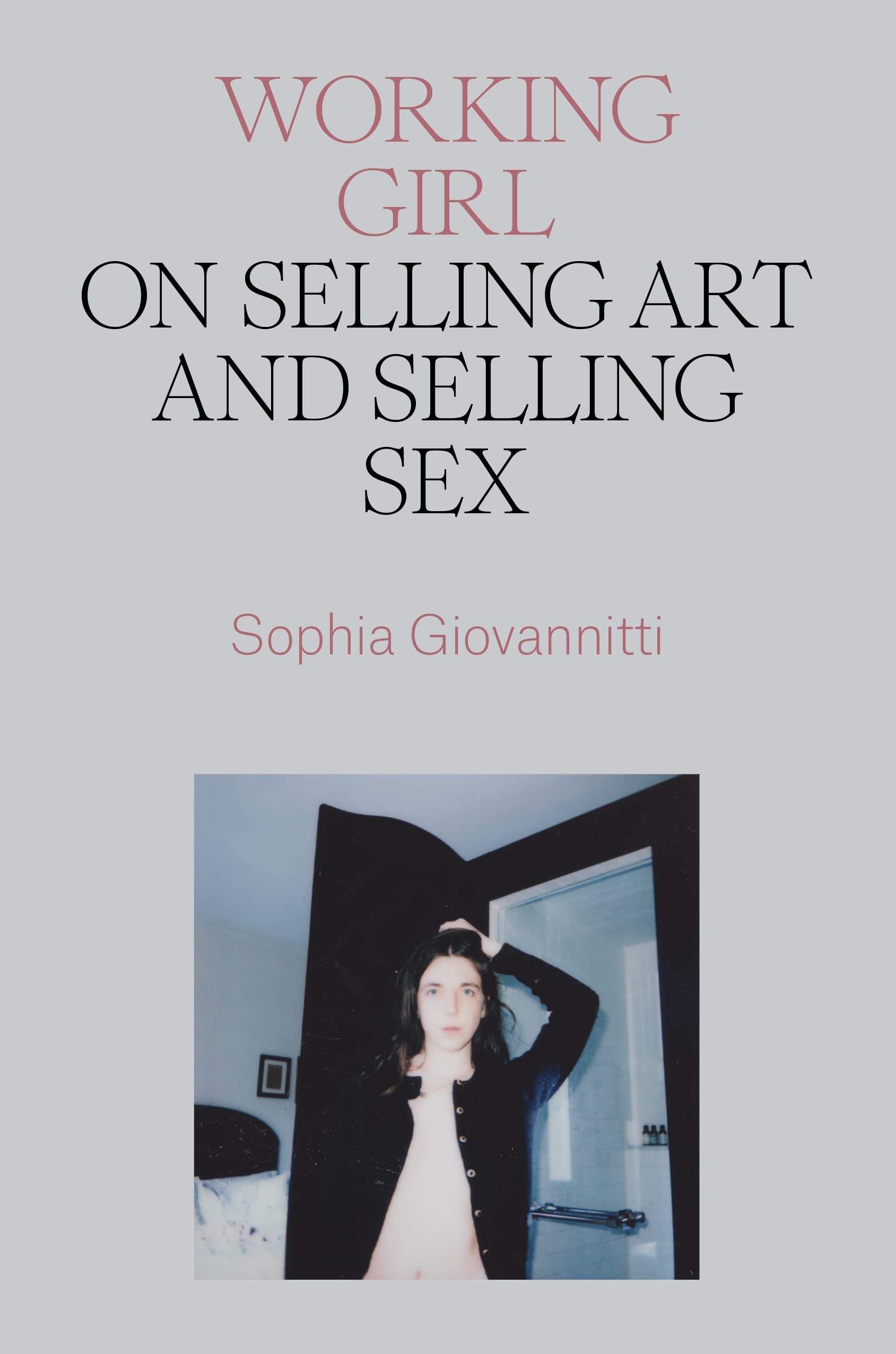Sophia Giovannitti begins selling sex because it promises to make her the most amount of money in the shortest amount of time. She also has a “near categorical hatred of work.”
I nearly – mentally – tweak that sentence to read “of conventional types of work”, but that simply wouldn’t be true: throughout Working Girl: On Selling Art and Selling Sex, Giovannitti asserts that the problem is work itself, which brings us back to the selling of sex as a no-brainer solution for somebody who is actively disengaged with the entire system. Sex work is her unconventional – though no less valid – ticket to the “life” within “work-life balance”.
This is an interesting conceptual proposition, and one that would perhaps have proved a more radical thread through a work that soon ushers in its other premise: that the selling of art is a correlative economic experience to sex work. For, as the blurb and text remind us, there are heretofore unexplored parallels between the selling of one’s body, and the selling of one’s art. In fact, at times, the two products merge seamlessly. Despite being market industries like any other, sex and art are placed on an ideological pedestal – made somehow sacred, somehow innocent – by buyers and sellers alike, lending them a very particular role to play in late-stage capitalism. Sometimes, as in Giovannitti’s experience, they represent a challenge to the fate inscribed onto every adult operating under this particular system: that you grow up, you work, and you die.
It takes a while to relax into Giovannitti’s argument. The author is a cis, white woman, with self-admitted access to financial and educational resources. I have to challenge my initial bristle at her “choice” to become a sex worker, and her consequent conception of it as art, when there are myriad other options available. Hers is a position in which participation in a mainstream, above-ground economy is viable. But then I catch myself thinking that I don’t vilify or scrutinise Giovannitti’s client-base, men who have also entered into the workplace (often the art world, sought out specifically by our author) with the self-same ambition to make the most money in as short a period as possible. This is possibly because I hold this slim demographic to a lesser moral standard – I don’t expect them to be good people, and it certainly catches Giovannitti off-guard when some of them, sometimes, are sweet, generous, or thoughtful.
 Perhaps more importantly, though, I am soon seduced by the opportunity to have my preconceived notions challenged: what a sex worker, especially as artist, should and could be. Giovannitti smashes my assumption that, going into this text, her liberal embrace of sex work as art will feel at best ridiculous, and at worst, totally out of touch. Not only does she meet the bare minimum – a frank acknowledgment of her privilege – but she relies throughout on the scholarship of sex workers and artists who don’t enjoy the same institutional safeguarding as she does, constantly upholding their voices as the source of her insight. Clearly a confident academic, she moves deftly between artistic, historical, and literary sources, through which emerges some startlingly original thinking around the interconnection of the sex and art industries (though without ever losing the premise that hers is a contributory word, far from the final say on the matter).
Perhaps more importantly, though, I am soon seduced by the opportunity to have my preconceived notions challenged: what a sex worker, especially as artist, should and could be. Giovannitti smashes my assumption that, going into this text, her liberal embrace of sex work as art will feel at best ridiculous, and at worst, totally out of touch. Not only does she meet the bare minimum – a frank acknowledgment of her privilege – but she relies throughout on the scholarship of sex workers and artists who don’t enjoy the same institutional safeguarding as she does, constantly upholding their voices as the source of her insight. Clearly a confident academic, she moves deftly between artistic, historical, and literary sources, through which emerges some startlingly original thinking around the interconnection of the sex and art industries (though without ever losing the premise that hers is a contributory word, far from the final say on the matter).
This ability of Giovannitti’s – to make clear to the reader that she knows that the path she treads is a relatively bubbled one – contextualises the various snippets of clients, drinks, slip-ups, and successes that pepper her prose. Her stories are never gratuitous; rather, they offer a crucial lived perspective, revivifying the densely cerebral ideas that the text is trying to work through. We visualise the New York skylines that bejewel the walls of New York hotels; we taste the tepid martinis that lubricate each interaction; we feel the sticky gaze of a man radiating lust. In short, we get to know the real author and the life she leads; she cultivates an intimacy that begets the inclusion of her messier, more contradictory opinions, those gems of insight that can feel hard-won in writing about an industry that everyone and their mother – myself included – seems to have dismissed or misguidedly caricatured. Early in the text, she describes the decision to drop her pseudonym when interacting with clients, and the feeling of liberation she experiences when called, during sex, by her own name. It is at this point that the reader becomes aligned with the revolving door of men soliciting her sex, as we too learn who exactly this “Sophia” is.
This sense of intimacy invites Giovannitti to push her comparisons between art and sex into genuinely exciting territory, leading us back to the reason for her choices in the first place: a rejection of work. There is the sense, especially towards the text’s end, that this freedom overrides the manifest difficulties that selling art, selling sex, and selling sex as art brings: clients who misread Giovannitti’s boundaries; a quiet isolation – at times scorn – from non-sex workers; emotional and psychological disengagement, or disillusionment; even friction with her boyfriend, whom she loves fiercely. All of these tribulations are made worth it by the particular lifestyle she has found herself living. “I don’t want to be a whore forever,” she notes on the penultimate page. “I do want to be an artist forever. I hope we don’t always have to work or sell to live.” Giovannitti has acted for years with a granular understanding of her own financial, creative, and personal goals – the resultant tangible product is a book that at once deeply informs and deeply challenges.
- Working Girl: On Selling Art and Selling Sex by Sophia Giovannitti (Verso Books, £14.99)
- More book reviews on theartsdesk















Add comment